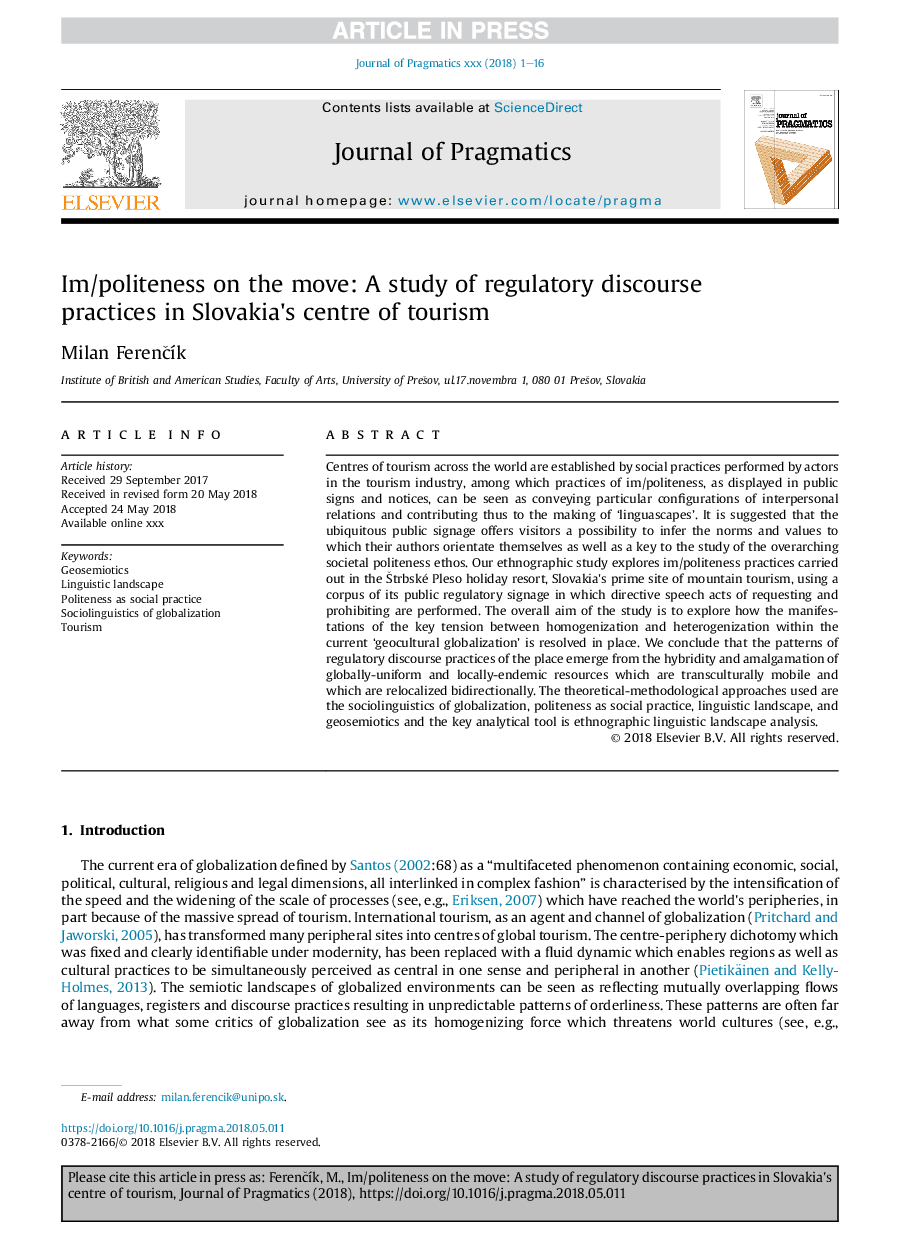| Article ID | Journal | Published Year | Pages | File Type |
|---|---|---|---|---|
| 7297180 | Journal of Pragmatics | 2018 | 16 Pages |
Abstract
Centres of tourism across the world are established by social practices performed by actors in the tourism industry, among which practices of im/politeness, as displayed in public signs and notices, can be seen as conveying particular configurations of interpersonal relations and contributing thus to the making of 'linguascapes'. It is suggested that the ubiquitous public signage offers visitors a possibility to infer the norms and values to which their authors orientate themselves as well as a key to the study of the overarching societal politeness ethos. Our ethnographic study explores im/politeness practices carried out in the Å trbské Pleso holiday resort, Slovakia's prime site of mountain tourism, using a corpus of its public regulatory signage in which directive speech acts of requesting and prohibiting are performed. The overall aim of the study is to explore how the manifestations of the key tension between homogenization and heterogenization within the current 'geocultural globalization' is resolved in place. We conclude that the patterns of regulatory discourse practices of the place emerge from the hybridity and amalgamation of globally-uniform and locally-endemic resources which are transculturally mobile and which are relocalized bidirectionally. The theoretical-methodological approaches used are the sociolinguistics of globalization, politeness as social practice, linguistic landscape, and geosemiotics and the key analytical tool is ethnographic linguistic landscape analysis.
Keywords
Related Topics
Social Sciences and Humanities
Arts and Humanities
Language and Linguistics
Authors
Milan FerenÄÃk,
